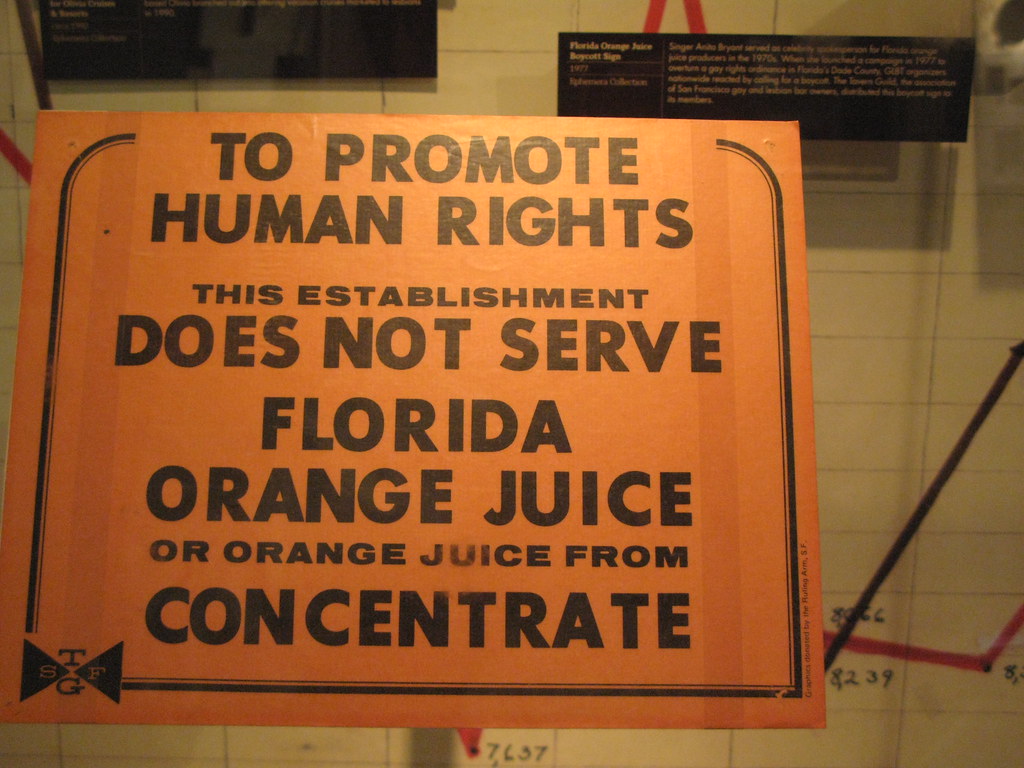#Bryant & Associates
Text
Hitting the Mark: Stunt Driving Experts Olivia Summers and Dee Bryant.
Retreat Curious? Schedule a call with me to see if our FIlmmaker Retreat is right for you.
Wow, great time chatting with stunt drivers Olivia Summers and Dee Bryant. We talk about the precision required for their work – things like practicing hitting marks down to the inch. It was fascinating to hear how they rehearse big sequences. We keep it real talking about the challenges Olivia and Dee…

View On WordPress
#Association of Women Drivers#Commercial Directing Film School#Dee Bryant#Filmmaker Retreat#Filmmaker Retreat Joshua Tree#Jordan Brady#masterclass#Olivia Summers
0 notes
Text
Los Angeles Lakers' Austin Reaves is rising
Los Angeles Lakers’ Austin Reaves is rising
Austin Reaves is having an impact on this Lakers run.Image: GettyImages
The Los Angeles Lakers have turned their season around.
They have won eight of their last 10 games, and started a six-game road trip 2-0. Will their season turn back in the wrong direction is anyone’s guess, but for now the Lakers are one of the hottest teams in the NBA.
Success begins with their best player, Anthony Davis.…

View On WordPress
#2012–13 Los Angeles Lakers season#Anthony Davis#Austin Reeves#Basketball#deadspin#Kobe Bryant#Los Angeles Lakers#McDonald&039;s High School All-Americans#National Basketball Association#National Basketball Association Finals#NBA#shooting guards#Sports#the NBA
1 note
·
View note
Text
Writing Notes: Parenting Styles

What can parents do to nurture a healthy self-concept?
Diana Baumrind (1971, 1991) thinks parenting style may be a factor.
The way we parent is an important factor in a child’s socioemotional growth.
Baumrind developed and refined a theory describing parenting styles based on 2 aspects of parenting that are found to be extremely important:
Parental responsiveness, which refers to the degree the parent responds to the child’s needs.
Parental demandingness, is the extent to which the parent expects more mature and responsible behavior from a child.
Using these two dimensions, she recognized 3 different parenting styles:
Authoritarian (Too Hard)
The authoritarian parenting style is characterized by high demandingness with low responsiveness.
The authoritarian parent is rigid, harsh, and demanding.
Abusive parents usually fall in this category (although Baumrind is careful to emphasize that not all authoritarian parents are abusive).
Permissive (Too Soft)
This parenting style is characterized by low demandingness with high responsiveness.
The permissive parent is overly responsive to the child’s demands, seldom enforcing consistent rules.
The “spoiled” child often has permissive parents.
Authoritative (Just Right)
This parenting style is characterized by high demandingness with huge responsiveness.
The authoritative parent is firm but not rigid, willing to make an exception when the situation warrants.
The authoritative parent is responsive to the child’s needs but not indulgent.
Baumrind makes it clear that she favors the authoritative style.

Comparison of 4 parenting styles
PARENTING STYLES & CULTURE
Authoritative Style
Of the 4 parenting styles, the authoritative style is the one that is most encouraged in modern American society.
American children raised by authoritative parents tend to have high self-esteem and social skills; however, effective parenting styles vary as a function of culture and, as Small (1999) points out, the authoritative style is NOT necessarily preferred or appropriate in all cultures.
Authoritarian Style
In contrast to the authoritative style, authoritarian parents probably would not relax bedtime rules during a vacation because they consider the rules to be set, and they expect obedience:
This style can create anxious, withdrawn, and unhappy kids.
It is important to point out that authoritarian parenting is as beneficial as the authoritative style in some ethnic groups (Russell, Crockett, & Chao, 2010).
Example: First-generation Chinese American children raised by authoritarian parents did just as well in school as their peers who were raised by authoritative parents (Russell et al., 2010).
Permissive Style
Not surprisingly, children raised by permissive parents tend to lack self-discipline, and the permissive parenting style is negatively associated with grades (Dornbusch, Ritter, Leiderman, Roberts, & Fraleigh, 1987).
The permissive style may also contribute to other risky behaviors such as alcohol abuse (Bahr & Hoffman, 2010), risky sexual behavior especially among female children (Donenberg, Wilson, Emerson, & Bryant, 2002), and increased display of disruptive behaviors by male children (Parent et al., 2011).
There are some positive outcomes associated with children raised by permissive parents. They tend to have higher self- esteem, better social skills, and report lower levels of depression (Darling, 1999).
Source
#writing notes#psychology#parenting styles#writeblr#spilled ink#dark academia#writing reference#studyblr#character development#literature#writers on tumblr#writing prompt#poetry#poets on tumblr#writing inspiration#writing ideas#character building#creative writing#culture#lilla cabot perry#art#impressionism#writing resources
76 notes
·
View notes
Text
Loving you is a losing game

Pairing : Judge Turpin x Reader OC
Summary : The Judge Turpin has married you by buying your hand to your father. Determined to not let him get close to you and even less reach your heart well kept under ice and resentment, you keep on to push him away. But after having been told that loving you is a losing game, something new seems to awake inside of you.
Tag(s)/Warning(s) : Forced marriage. Assault.
A/N : Hello dear 😁 here lay my first Turpin fiction. I didn't really know where I was going with it but here is it. I didn't proofread it so there are probably some mistakes, sorry for that. I forgot to mention I am not the one who came up with the name Richard. I read this name in the terrific trilogy “Judged and Sentenced” from @deepperplexity. Since then I saw the name pop up here and there and so, I suppose the name is sort of canon now 😅
Part II
Read also on AO3

You couldn't put up with the fact that he had bought you. But it wasn't really him, your husband, that you despised for that. It was your father. The man you thought you could always count on.
You had had quite an easy childhood with not too many constraints, which were rather rare at that time. You had been taught to read and to write. And you were a good writer. Such a good one that one day, a publisher from a local and independent Newspaper from London made you sign a contract to edit some of your short stories in his Sunday paper. And as he was well known in the literary sector, he put you in touch with a book publisher. This is how you became "Alexander Bryant" in the eyes of the public. Of course, you weren't able to be published under your real name. A female writer ? What an offense !
But you didn't really care as you were able to make some money from the sale of it. Some really good money, a rarity for a woman. It was fortunate as, for the biggest desperation of your father, you weren't, in any way possible, a good maid. You couldn't sew two points in a raw correctly, your cooking wasn't palatable at all and if you appreciated living in a tidy house, you couldn't spend more than one hour or less doing that.
But you didn't have to worry about it now as you had been married for two months to no one else than "The Death's Judge".
"How did it happen to me," you muttered to yourself, looking at you in the mirror without really seeing your reflection.
In fact, you perfectly knew how it had happened. You didn't know how and you didn't know where, but Richard, your now husband, had noticed you one day and since then, your faith was decided.
He came one day to your house with a bouquet of flowers for you. You had looked at him suspiciously. You knew who he was. His reputation preceded him of course but you also had a glimpse at him one day when you were at the court with your publisher and one of his associates to negotiate the terms of your new contract with a solicitor.
At that time, you didn't think anything peculiar about the man. You vaguely remembered having thought that he was quite handsome with his hooked nose, his tall frame and his charismatic presence. If you hadn't been forced to marry him, you would have admitted that you had found him alluring.
But here was the point : your father had sold you to the man.
That day when he came to your house with his bloody flowers and his absolutely not appealing smile. He had asked to talk with your father and you had fetched him as quickly as you could, afraid that he was in trouble.
He wasn't in trouble, nevertheless, the call of the money echoed deeply in him when Judge Turpin offered a generous dowry for your hand.
"I apologies to have to tell you are in the wrong Judge Turpin."
The man had looked up at you with a frown.
"This is the woman's family who have to provide you with a dowery and unfortunately, no one here is in measure to give you a penny."
It was half a lie as you kept your money in security into a chest under your bed. You weren't quite honest about your earnings with your father as he was quite a spendthrift. So, you helped him by giving him a small amount of money, keeping preciously the rest away to constitute a nest egg for later.
Absolutely not bewildered by your interruption and your statement, Turpin had grinned before announcing that you were the one making in mistake in this particular case.
"I had the sincere desire to marry you and as I just said, I will give a compensation to your father for the loss of his precious daughter."
You had retained a laugh, persuaded that never ever my father would agree to such an obnoxious offer.
You were so wrong. The Judge had let you some days to think over the offer he had laid on.
Tempted by this important amount of money Turpin was willing to pay to ensure that your father handed over your hand to him, your thoughtful father didn't need to think too long to accept his offer and in the blink of an eye, you were betrothed.
You had protested, swearing that you would prefer to kill you rather than marry the man, the deal was sealed without you having a say. In any way, no one was willing to listen to you.
During the ceremony, you were full of apprehension, afraid about your wedding night. But for your biggest surprise, nothing happened. After the party, the both of you retired in the privacy of his opulent mansion, he showed you your room and left you alone.
Your new house was daunting, not up to your expectations. The exteriors were quite imposing, displaying the wealth of the Judge, but the inside was… not really gloomy but also not really lively. It was as if the house was uninhabited. And you discovered later it was the case. Turpin, Richard as he asked you to call him, was seldomly at home. He departed for the court early in the morning and came back late in the night. Since your wedding, you didn't share a meal together and your only company was your maid.
For such a big house, he didn't have nearly so much staff as one could expect of a man of his stature would have. A cook, three maids, whose one had been hired exclusively for you, and the Beadle. You didn't really know who the man was and what clearly was his function beside your husband but you couldn't stand him. His ratty face didn't inspire you any confidence. He seemed deceitful and ready to betray his own mother if it could bring him any advantages.
"Like Richard," you said to no one as you were looking out the window at the crowd running around the city.
Hadn't you been so resentful about the latest events, you would have admitted that your life wasn't as bad as you imagined it would become after your wedding.
He didn't touch you that night nor any other after that. He didn't try anything which could have distressed you, didn't restrict you from any freedom you thought you would be longing for. You were allowed to write, he was more than happy to furnish you the papers and the ink you needed and he had arranged a room for you to make your office. You were allowed to go out, only on the condition to stay in the richest part of the town and you could visit your publisher when needed without his approval. His only wish was that you let your maid know when you were leaving the home. You weren't dupe, you knew that as soon as you set a foot outside, he was informed. But even if he was aware of each of your movements inside and outside the mansion, you were still able to enjoy your freedom, a privilege a lot of women lost after being married.
He also lavished you with presents. Valuable jewelry, the most beautiful dresses you had ever seen, books, flowers. Not a week had passed without an attention for you. In the beginning, you hesitated between bringing the presents into his office to let him know you didn't want to have anything to do with him but well aware of his reputation, you had been afraid of infuriating him. After all, you didn't really know the man and he could retake what he had given you at any time.
So was what you told to yourself rather than admit the truth : you were flattered and pleased to receive such beautiful gifts. Should someone have utter that maybe you could come to appreciate your husband you would fervently have denied it. After all, how could you become accustomed to him without having the opportunity to speak with him ?
The only moments shared together were on Sunday. Richard wasn't a fervent believer in God and neither did you, so you had a lazy Sunday at the mansion. It was the only time during which you ate lunch and diner together and during the afternoon, he systematically invited you to join him in the parlor but you rarely spoke to one another. In general, both of you were reading. Sometimes, you brought with you your ongoing book and he would ask you random questions about it. He had once admitted to having your previous literary work.
"And what did you think of it ?" you had asked with a feigned indifference.
Your stoicism hid your nervousness. You couldn't fathom why you felt nervous about his opinion about your work, but you were.
"Well my dear, It is unusual for a woman to write about such things as a vampire. Even less a love story like this one. Does the sexual tension between the human lady and the vampire make on purpose ?" he had asked bluntly.
You had nodded once, your cheeks flushing at the mention of some somewhat suggestive scenes from your book.
"Well, I am impatient to read the next part of it."
And that was all.
Mustering up the motivation you were lacking to officially begin the day, you pulled yourself away from the window and asked the help of your maid to get ready to go out. You had to go see your publisher and then, you expected to have a walk in the park to make the better of the sunny day, which began to spread ahead as the hours passed by.
But nothing happened as you had planned. While you were walking in the street, you took a side road to reach faster your destination. It was a dark, filthy little street dwelt with drunkers and dwellers. You weren't really scared as you had taken this path numerous times in the past and as long as you minded your own business, you weren't really in danger. At least, it was what you thought. How wrong you were, you realized when a callous hand had fallen on your mouth.
"Your lost little beauty ?" asked a raspy voice.
You shivered, trying with all your strength to get away from the man but his grip was strong.
"Don't make it difficult little beauty, you will like it."
You bit his hand to blood, which earned you a ferocious slap on the face. You fell on the ground, a bit dizzy, trying as hard as you could to pull yourself together but you didn't have the time than his hand clenched at your hair, pulling you violently towards him. Standing you up roughly, making you let a squirm escape your lips, he pushed you against the wall, a hand on your breasts, another trying to find his way under your skirt.
Totally paralyzed, you were unable to move or even scream. Your breath became heavy as you stayed motionless even though you knew what would happen next.
He has approached his face from yours, his foul breath caressing your lips, making you want to throw up, when a snicker was heard.
Not really moved by the onlooker, the man had run his tongue across your cheeks, which had the effect of waking you up from your trance.
You tried to slap him but he was faster and knocked your head with his fist.
"Constable !' shouted a voice.
In one instant, the man was pushed down to the ground by two constables. Behind them were the Beadle. The snicker-man.
"Having dared to touch the wife of the Judge Turpin…" he muttered, enjoying the moment.
"It is something that will send you right through your death," he added with a horrendous laugh.
You have been brought back to the mansion by another policeman while Beadle escorted your assaulter to the prison, clearly enjoying what he had witnessed and the fate of the mongrel.
When you arrived, Richard was already torn, the worry imbued all over his face.
"[Y/N], dear, are you well ?" he asked his voice full of concern.
He tried to take your hand but you pushed him away before holding yourself tightly to retain your shivers.
He didn't follow you as your maid came towards you to lead you to the bathroom where she ran a bath for you. You soaked in the water until it was cold. Then, you called for your maid. At any other time, you would have dismissed her as soon as your bath was ready. You didn't like having someone around you to help you with something as trivial as drying you off but you were exhausted and could barely keep your eyes open. But it's not your maid who entered into the room. It was your husband.
"Richard…" you whispered, not daring to look at him.
You felt suddenly wide awake, the tiredness dissipated and replaced with something else. You felt ashamed about what had happened. You knew it wasn't your fault, for that man had acted with malignancy and it couldn't have been the first time. At this thought, you bristled.
"[Y/N], let me help you," he said, stepping in carefully.
He dropped a thick towel around you but when he tried to rub you in the aim to bring some heat to your cold skin, you backed away.
"Don't be afraid [Y/N]. I just want to help you. I will protect you."
He tried again to approach you but then again you backed away, trying to shut him out from trying to break through your shell.
"[Y/N]," he said almost desperately.
You shook your head, muttering for him to go away.
"Leave me alone," you said with anger.
"No ! I want to help you," he replied, looking with disapproval at the bruises which began to form on your face.
"I don't want your help ! I want you to go out. Let me be !" you shouted.
"No ! You are my wife, my place is by your side."
"I'm not," you retorted.
"What ?" Asked Richard, his own anger boiling up quietly but surely.
"I am not your wife," you said with defiance.
He made one step towards you and this time you didn't move, holding his gaze with fury.
"You are my wife. We had wed in front of our families and of God !"
"God has nothing to do with our marriage. You have bought a wife as we bought a dog."
"I asked for your hand because I am in love with you."
"How ? How could you be in love with me ? We have never spoken together !" you shouted totally oblivious that the staff could hear you. "If you were really in love with me, you would have courted me properly."
"Would you have agreed ?"
You didn't respond as the answer was obvious. Never you would have paid the slightest attention to his advance, but there wasn't the point.
"So, no matter what, you get what you want by fair means or foul." you spit out.
"My patience grows thin, woman." he warned you.
"And what are you going to do ? Giving me a beating ?" you asked brazenly.
He clenched and unclenched his fists several times. Never would he have laid a finger on you on the purpose of hurting you but you were clearly unnerving him far more than anyone before you had dared to.
"I try [Y/N]. I try very hard. You are the one unwilling to make any effort to come to me and get to know me."
"Buying a hand doesn't mean you buy a heart !" you retorted coldly.
You were about to add something else, something you wish was hurtful but you didn't have time as he cut you off.
"I tried to talk about your writing, about your childhood, your hobbies. You always answered me with monosyllable, always with a bored look on your face. I gave you space, I didn't coerce you to oblige to your marital duty, I let you go out alone as a proper lady shouldn't do. And this is how you thank me each time. By pushing me away. Again and again and again. Each time I try to show you kindness, you answer with meanness."
He had said that in a calm, poised voice but his anger could clearly be heard. He had talked with the calm severity of a teacher who doesn't need to raise his voice to make his disobedient pupils obey.
"Richard," you whispered.
"Loving you is a losing game but things are going to change, woman ! I am not to let you mess with me anymore. Yes, mark my words, things are going to change for you woman !" he growled dominating you with his imposing presence.
His baritone voice sent some shivers along your backbone.
With one last look at your bruised face, he quit the room, slamming the door behind me.
You stayed there for a while, stunned by what had just happened. He was right. Now that you thought about all the moments he had passed with you, never had you let him reach you farther than the cold surface layer that prevented the world from knowing the real you.
You were so angry about having been bought like an animal that you had never tried to be more acquainted with him. He was right, never ever he could have had your attention, even less your friendship and certainly not your heart if he hadn't barged in your home. And if you were totally honest, you would admit that you begrudged far more your father than Richard for the deal that was made that day.
"But He still didn't have my heart." you reasoned with yourself.
But inwardly, you felt as if it weren't true anymore. Not totally. You couldn't tell you were in love with him but for the first time, you were ready to recognize that you felt something for the man.
Loving you is a losing game, had he said but at this precise moment, you felt as if you were the one losing the game you had settled the both of you in. You were losing the game of hatred in favor of love. And this night, whilst you were staring at the ceiling, you found yourself hoping that he take back his words, that he came to the conclusion that loving you was worth it.
#alan rickman x reader#judge turpin#judge turpin x reader#judge turpin x you#alan rickman#sweeny todd#evans23
78 notes
·
View notes
Text


In the 1970’s, Anita Bryant was the spokesperson for the Florida Citrus Commission and a phrase she regularly said in commercials was “Breakfast without orange juice is like a day without sunshine.”
In 1977, Anita began her anti-LGBTQ crusade, which marked the beginning of organized opposition to gay rights that spread across the nation. This led to a boycott of Florida orange juice and gay bars all over North America stopped serving screwdrivers. In reaction to Anita Bryant's national crusade, this now-famous sign appeared at the 1979 Gay Freedom Day parade in San Francisco.
Bryant's reputation as a self-righteous bigot ruined her career as companies didn't want to be associated with such a controversial figure.
————————————————————
And in what seems like karma, in 2021 Bryant's granddaughter, Sarah Green, came out publicly as gay on an episode of Slate's "One Year" podcast by announcing her pending marriage to a woman.
Sarah also shared that on her 21st birthday, her grandmother sang Happy Birthday and said that one day a husband would come along for her.
“I just snapped,” Sarah Green told “One Year.” “[I] was like, ‘I hope that he doesn’t come along because I’m gay, and I don’t want a man to come along.’” To this, Bryant replied that homosexuality is not real.
“It’s very hard to argue with someone who thinks that an integral part of your identity is just an evil delusion,” said Green. “She wants a relationship with a person who doesn’t exist because I’m not the person she wants me to be.”
Despite her grandmother’s hardline stance against a core aspect of her identity, Green mostly takes pity on Bryant.
“I just kind of feel bad for her. And I think as much as she hopes that I will figure things out and come back to God, I kind of hope that she’ll figure things out,” Green said.
88 notes
·
View notes
Text
“Although bisexuals have always been part of lesbian and gay movements and communities, they have often not been visible as bisexuals in these groups. Consider, for instance, these little-known historical facts:
A bisexual man was one of the key organizers of the first national March on Washington for Lesbian and Gay Rights in 1979. He also cofounder the National Coalition of Black Lesbians and Gays and led a delegation of black gays to meet with White House staff while Carter was President.
A bisexual Washingtonian was one of the first women to write about living women in the national feminist news journal, off our backs, in 1972.
It was a bisexual man who conceived and spearheaded the successful national “gaycott” of Florida orange juice in response to Anita Bryant’s homophobic “Save Our Children” campaign in Dade County, Florida, in the late 1970s.
A lesbian-identified bisexual ex-suburban housewife ran for Vice President on a bisexual/lesbian/gay civil rights platform during the 1984 Democratic Party convention in San Francisco.
In May 1989, a bisexual veteran from New England, representing the National Gay, Lesbian, and Bisexual Veterans Association, was the first out-of-the-closet veteran invited to testify before Congress on behalf of all lesbian, gay, and bisexual veterans.
But even in these high-profile “out” positions, bisexuals often continued to be perceived as gays and lesbians by both the gay rights movement and the rest of society.”
- Loraine Hutchins, Bisexuality: The Psychology and Politics of an Invisible Minority
102 notes
·
View notes
Text

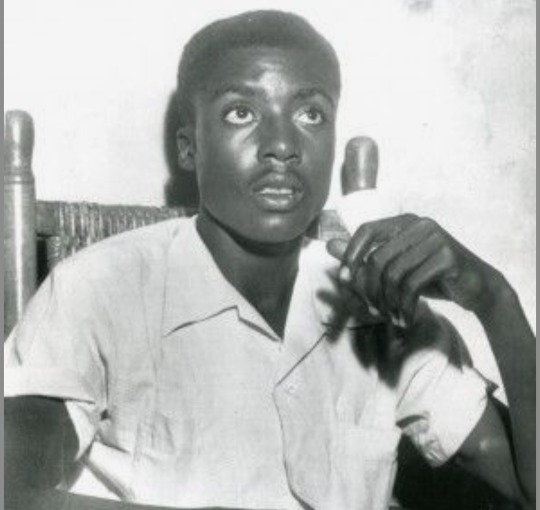
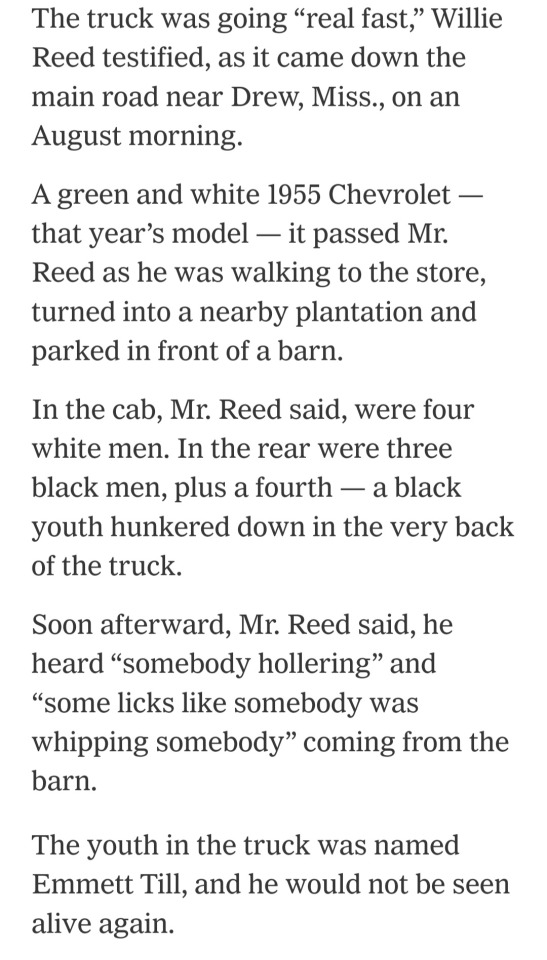



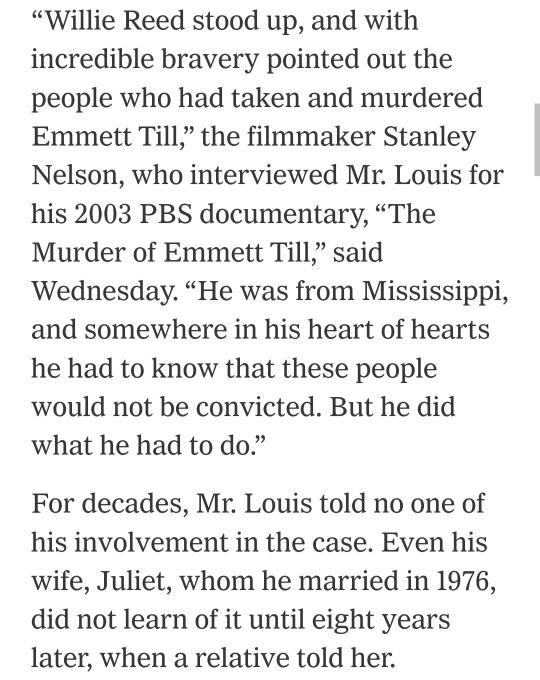
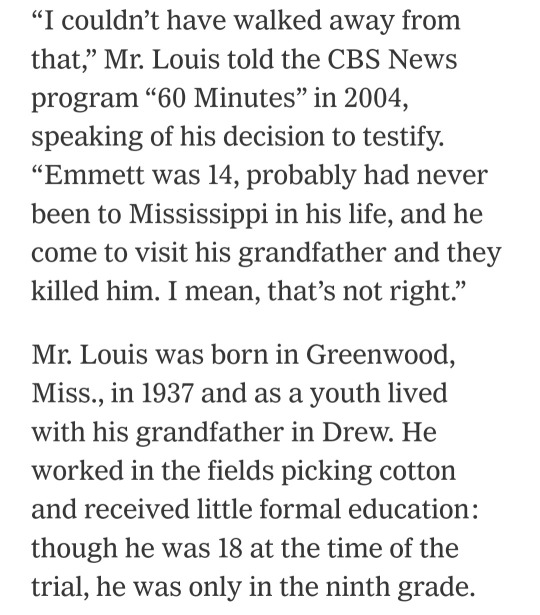

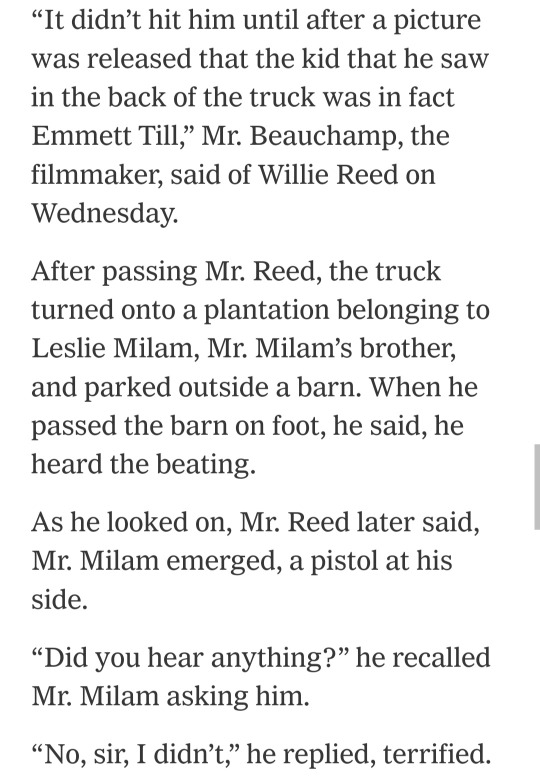
"He was really the best eyewitness that they found," David T. Beito, a historian at the University of Alabama who has written about the Till case, said Wednesday. "I don't want to diminish the role played by the other witnesses, but his act in some sense was the bravest act of them all. He had nothing to gain: he had no family ties to Emmett Till; he didn't know him. He was this 18-year-old kid who goes into this very hostile atmosphere."
The trial opened September 19, 1955. On September 23, the all-white jury, after deliberating for 67 minutes, acquitted both defendants.
Mr. Reed's testimony, Professor Beito said, was no less valuable for that.
"The prosecution - and this is not emphasized enough - was arguing a conspiracy case," he said. "They were arguing that more than two people were involved in the crime, that it wasn't just Milam and Bryant. And Reed's testimony was that it was a crowded pickup."
The other white men in the truck were believed to be cronies of Mr. Milam and Mr. Bryant, the black men employees of Mr. Milam who were forced to take part in the crime. None of the other men, black or white, was ever charged.
With the aid of T.R.M. Howard, a prominent local black doctor and civil rights advocate, Willie Reed was sent to Chicago, where he was given round-the-clock police protection at first. But the terrors of the crime and trial overtook him, and he was hospitalized with a nervous breakdown.
For years during their marriage, Mr. Louis suffered from nightmares, Juliet Louis told The Associated Press.
J.W. Milam died in 1980, Roy Bryant in 1994. In a 1956 article in Look magazine for which they were paid, the two men admitted to having murdered Till.
117 notes
·
View notes
Text
By Rich Calder and Matthew Sedacca
Far-left billionaire kingmaker George Soros has funneled more than $15 million since 2016 to groups behind this month’s pro-Palestine protests, where demonstrators openly cheered Hamas militants’ craven terrorist attacks on Israel.
A Post examination of Open Society Foundations records shows Soros’ grant-making network gave $13.7 million of the money through Tides Center, a deep-pocketed lefty advocacy group that sponsors several nonprofits who’ve justified Hamas’ bloody attacks while claiming Palestinians obsessed with the eradication of the Jewish state are the real victims.
Tides’ beneficiaries include Illinois-based Adalah Justice Project, which on the day of the Oct. 7 massacre posted a photo on Instagram of a bulldozer tearing part of Israel’s border fence down and a caption: “Israeli colonizers believed they could indefinitely trap two million people in an open-air prison… no cage goes unchallenged.”
Members of the Palestinian advocacy group occupied California Rep. Ro Khanna’s office on Oct. 20 to demand he sign a resolution calling for ceasefire in Gaza. Adalah’s members also co-sponsored a rally that same day in Bryant Park where hostile demonstrators spewed antisemitic chants and waved a sign that read “I DO NOT CONDEMN HAMAS.”
It also gave $30,000 in 2020 to Desis Rising Up and Moving, another co-sponsor of the Bryant Park protest where 139 people were arrested, financial records show.
Open Society Foundations gave $60,000 in 2018 to the Arab American Association of New York, a group co-founded by politically connected activist Linda Sarsour that helped plan a hate-filled “Flood Brooklyn for Palestine” protest in Bay Ridge on Oct. 21, where protestors called for the eradication of Israel and held a sign of the Israeli flag in a trash basket that read “Please keep the world clean!”
Open Society Foundations also awarded $1.5 million to Adalah’s founding nonprofit, Adalah – The Legal Center for Arab Minority Rights in Israel, but only $800,000 of it was received before the legal center cut ties with the American organization in 2018. The legal center says its mission is to promote human rights in Israel.
Other Soros-backed, Palestinian advocacy groups whose members have been spewing hate at rallies since the massacre include Jewish Voice for Peace and If Not Now, which received $650,000 and $400,000, respectively.
20 notes
·
View notes
Text

First Afro-American ran for US President
“George Edwin Taylor ran for president a long time before Barack Obama.”
“Born in the pre-Civil War South to a mother who was free and a father who was enslaved, George Edwin Taylor would become the first African American selected by a political party to be its candidate for the presidency of the United States.
Taylor was born on August 4, 1857 in Little Rock, Arkansas to Amanda Hines and Bryant (Nathan) Taylor. At the age of two, George Taylor moved with his mother from Arkansas to Illinois. When Amanda died a few years later, George fended for himself until arriving in Wisconsin by paddleboat in 1865. Raised in and near La Crosse by a politically active African family, he attended Wayland University in Beaver Dam, Wisconsin from 1877 to 1879, after which he returned to La Crosse where he went to work for the La Crosse Free Press and then the La Crosse Evening Star. During the years 1880 to 1885 he produced newspaper columns for local papers as well as articles for the Chicago Inter Ocean.
Taylor's newspaper work brought him into politics--especially labor politics. He sided with one of the competing labor factions in La Crosse and helped re-elect the pro-labor mayor, Frank "White Beaver" Powell, in 1886. In the months that followed, Taylor became a leader and office holder in Wisconsin's statewide Union Labor Party, and his own newspaper, the Wisconsin Labor Advocate, became one of the newspapers of the party.
In 1887 Taylor was a member of the Wisconsin delegation to the first national convention of the Union Labor Party, which met in Ohio in April, and refocused his newspaper on national political issues. As his prominence increased, his race became an issue, and Taylor responded to the criticism by increasingly writing about African American issues. Sometime in 1887 or 1888 his paper ceased publication.
In 1891 Taylor moved to Oskaloosa, Iowa where he continued his interest in politics, first in the Republican Party and then with the Democrats. While in Iowa Taylor owned and edited the Negro Solicitor, and became president of the National Colored Men's Protective Association (an early civil rights organization) and the National Negro Democratic League, an organization of Africans within the Democratic Party. From 1900 to 1904 he aligned himself with the Populist faction that attempted to reform the Democratic Party.
Taylor and other independent-minded African Americans in 1904 joined the first national political party created exclusively for and by Africans, the National Liberty Party (NLP). The Party met at its national convention in St. Louis, Missouri in 1904 with delegates from thirty-six states. When the Party's candidate for president ended up in an Illinois jail, the NLP Executive Committee approached Taylor, asking him to be the party's candidate.
While Taylor's campaign attracted little attention, the Party's platform had a national agenda: universal suffrage regardless of race; Federal protection of the rights of all citizens; Federal anti-lynching laws; additional African regiments in the U.S. Army; Federal pensions for all former slaves; government ownership and control of all public carriers to ensure equal accommodations for all citizens; and home rule for the District of Columbia.
Taylor's presidential race was quixotic. In an interview published in The Sun (New York, November 20, 1904), he observed that while he knew whites thought his candidacy was a "joke," he believed that an independent political party that could mobilize the African American vote was the only practical way that blacks could exercise political influence. On election day, Taylor received a scattering of votes.
The 1904 campaign was Taylor's last foray into politics. He remained in Iowa until 1910 when he moved to Jacksonville. There he edited a succession of newspapers and was director of the African American branch of the local YMCA. He was married three times but had no children. George Edwin Taylor died in Jacksonville on December 23, 1925.”
Above written source=
George Edwin Taylor - 2014 - Question of the Month - Jim Crow Museum
The Brother tried and I knew all the Afro-Americans couldn't vote for him because voter suppression .

#george edwin taylor#african#afrakan#kemetic dreams#brownskin#afrakans#africans#brown skin#african culture#barack obama#african president#politics
243 notes
·
View notes
Text

Marietta Cooper Bryant (June 28, 1911 - October 14, 2004) was an Arizona educator and civil rights activist known for fighting for her right to teach in integrated classrooms before the SCOTUS case, Brown v. Board of Education of Topeka.
Born in Iconium, Oklahoma, not much is known about her early life. Documents reveal that she earned a BS in Home Economics from Oklahoma’s Colored Agricultural and Normal University.
She married Dave Bryant. After WWII, they moved to Miami, Arizona. She had obtained an Arizona teaching certificate and was offered a position at the Thomas Jefferson School for colored children in the Globe-Miami district.
She was a full-time tenured teacher with a contract, newly-passed legislation created a loophole. Teachers were initially protected by Arizona’s Tenure Law that stated teachers could not be unfairly dismissed from positions. The law stated that dismissals could be put forth if there was “good and just cause.” On March 15, 1951, a desegregation law was signed by Arizona Gov. Howard Pyle. Only three days before, they were told that their contracts would not be renewed. Colored children were being integrated into white public schools, but colored teachers were not being hired to teach in those schools.
They requested hearings with their respective school boards to argue against the unjust terminations. Their appeals were denied. The teachers sought the assistance of the Arizona Education Association, which hired legal representation for the teachers. The Gila County Superior Court ruled in favor of the teachers. The school boards appealed but lost. Both teachers were reinstated in 1952 and received a year’s back pay. She took a position teaching penmanship to grades 4-8 at the Bullion Plaza Elementary School in Miami, Arizona, where she remained until she retired.
She was inducted into the Arizona Women’s Hall of Fame posthumously. #africanhistory365 #africanexcellence
8 notes
·
View notes
Text







Joseph Washington "Jellybean" Bryant (October 19, 1954 – July 16, 2024) was an American professional basketball player and coach.[1] He played for the Philadelphia 76ers, San Diego Clippers, and Houston Rockets of the National Basketball Association (NBA). He also played for several teams in Italy and one in France. Bryant was the head coach of the WNBA's Los Angeles Sparks from 2005 to 2007[2] and returned to that position for the remainder of the 2011 WNBA season. Bryant also coached in Italy, Japan, and Thailand. His son, basketball player Kobe Bryant, was inducted into the Basketball Hall of Fame.
7 notes
·
View notes
Text
Denise Holmes, 24 (USA 1970)
California’s early legalization of abortion was hazardous to young Californians and their mothers, but the damage wasn’t limited to those living in the state. Travelers from across the country— or even those from overseas— were also killed by “safe and legal” abortion.
Denise Joy Holmes was an Australian citizen living in Texas. She was planning to go home for the holidays with a stop on the way. On December 21, she was checked into Avalon Hospital in Los Angeles, California.
Despite the name, Avalon Hospital was an abortion facility. It was a chain location owned by Edward “Fast Eddie” Allred, the owner and founder of Family Planning Associates. His abortion corporation and owned facilities are responsible for at least 18 client deaths.
Thanks to Allred and Avalon, Denise never made it home for Christmas or saw her family again. She was pronounced dead by Allred himself at 5:00 PM that day. She was only 24 years old.
An autopsy was performed and confirmed that the abortion killed her. Denise suffered an amniotic fluid embolism, but it wasn’t just amniotic fluid. Pieces of her dead baby had been left inside of her, as shown by the pieces of fetal bone marrow found in her lungs.
After Denise’s autopsy, her body was cremated and the ashes sent to her grieving family. Her remains were buried 3 days after Christmas.
After killing Denise, Allred was welcomed into the National Abortion Federation. He was widely known for his 5-minute abortions, which were in fact reckless and caused severe internal injuries in many cases.
Denise Holmes was the first known client to be killed by Allred’s facilities. She was nowhere close to the last. Others include 16-year-old Patricia “Patty” Chacon, Mary Pena, Josefina Garcia, 13-year-old Deanna Bell, 17-year-old Laniece Dorsey, Joyce Ortenzio, 19-year-old Tami Suematsu, Susan Levy, 18-year-old Christine Mora, Kimberly K. Neil, Chanelle Bryant, Ta Tanisha Wesson, Maria Leho, 16-year-old Nakia Jorden, Maria Rodriguez, Emmeko Reed and Kenniah Epps.
Los Angeles Death Certificate 55459 (Affadavit 702792)
"California, County Birth and Death Records, 1800-1994", database with images, Denise J Holmes, 1970 Document 55459 page 56
"California Death Index, 1940-1997," database, Denise J Holmes, 21 Dec 1970; Department of Public Health Services, Sacramento.
"California, Los Angeles, Angelus-Rosedale Cemetery/Crematory Records, 1884-2002", database, Denise Joy Holmes, 1970.
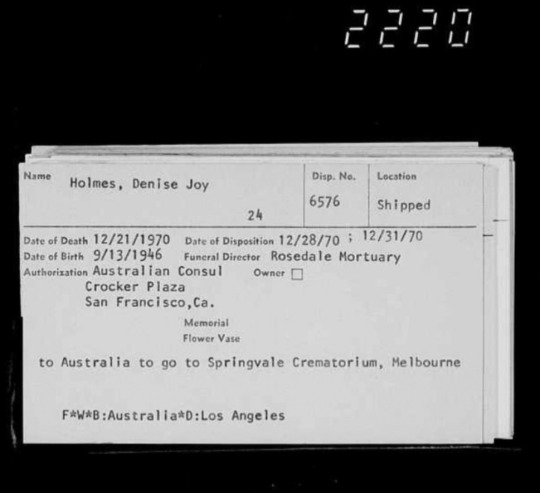
#tw abortion#unsafe yet legal#pre roe legal#pro life#tw murder#tw ab*rtion#abortion#abortion debate#death from legal abortion#fpa
36 notes
·
View notes
Video
Florida Orange Juice Boycott Sign 1977 by slowpoke_TW
Via Flickr:
"Singer Anti Bryant served as celebrity spokesperson for Florida orange juice producers in the 1970s. When she launched a campaign in 1977 to overturn a gay rights ordinance in Florida's Dade County, LGBTQ organizers nationwide reacted by calling for a boycott. The Tavern Guild, the association of San Francisco gay and lesbian bar owners, distributed this boycott sign to its members."
96 notes
·
View notes
Text
Tangled Web by L. M. Montgomery chapter 1 part 1 (my commentary).
Disclaimer: this post does not contain Tangled Web's spoilers, but there are several references to other LMM's books; The Blue Castle, Emily of New Moon, Anne of Green Gables, Jane of Lantern Hill, Marigold. I tried to keep it spoiler-free (but there are some minor spoilers for Emily and The Blue Castle), so just in case - all references to other novels are written in a blue colour!
Commentary:
The first sentence is so fascinating! It indicates that there are many mysteries and rumors associated with Aunt Becky's jug, which we are yet to discover. I love how Montgomery tells us that "this story is true" - it makes a reader feel important, as if they had been appointed to become a guardian of the most important family's secrets to which only a select few were allowed.
It is worth noting that family heirlooms (which jug seems to be) have always been an important aspect of Montgomery's books (A Lost Diamond in Emily's series, Marilla's amethyst brooch, Anne's porcelain dogs: Gog and Magog). We don't know a thing about the jug yet - whether it is beautiful or ugly, old or new, in a perfect condition or badly damaged. We don't know the stories associated with the jug, nor its origins. Yet, we realize that the jug will be the axis of this story.
Montgomery, as always, manages to interest the reader in a few short sentences, while at the same time introducing us to some characters. The above-mentioned characters (named Peter Penhallow, Big Sam Dark, Dandy Dark and Penny Dark) seem to be mere actors in this comedy-drama, whose epicenter is the jug. The allusions are delightful: "Peter Penhallow might to-day have been photographing lions alone in African jungles, and Big Sam Dark would, in all probability, never have learned to appreciate the beauty of the unclothed female form". A pure genius!!!
It's fascinating that sometimes the smallest objects can change a person's entire life, as was the case with Aunt Becky's jug. The object is therefore a symbol; just as in The Blue Castle, a rose bush symbolizes new life, freedom and happiness, just as in Emily's Quest The Lost Diamond became a symbol of creativity and literary success. What will it symbolize? According to the short description we are given in this paragraph; a change.
I love the idea of a novel, centred around a big family. Family bonds are incredibly important in Montgomery's novels: sometimes they are freeing (as was the case with Anne), sometimes they teach one about life (as was in Emily's case), sometimes they make it impossible to be oneselves (as was in Valancy's and partly, Jane's cases).
The family in The Tangled Web seems interesting from the very beginning. The idea of marrying only close relations seems... concerning, by today's standards. In real life, children, born to closely related parents, are more prone to suffer from the health-issues (we'll see if that is the case in the novel, too).
On the other hand, the marriage between first cousins may not have seemed too concerning in these times. It occurs in other Montgomery's novels, too (for example, The Murrays trying to marry a seventeen year old Emily Starr to her cousin, Andrew Murray).
I absolutely adore the idea of Aunt Becky being the head of the clan! In some respects, Montgomery really was ahead of the times in which she had lived. She created many strong, determined female characters, who ruled the family (Aunt Elizabeth, Rachel Lynde, Jane's and Marigold's grandmothers, Miss Cornelia Bryant, or even Marilla).
Aunt Becky's "honesty" reminded me a bit about Valancy's Aunt Isabel ("Aunt Isabel prided herself on saying what she thought, but didn’t like it so well when other people said what they thought to her".)
Aunt Becky seems to be a fascinating character! I really enjoy her "I am throwing a pre-funeral party, but if you want to eat anything, bring your own food, I am not going to bother about this on my death-bed" or "Please don't pretend to cry over my death" vibes. What a lady!!!
Also, there is something in Aunt Becky that reminds me of Mr. Carpenter's words: "Somehow—one needs—a spice—of evil—in every personality. It's the—pinch of—salt—that brings out—the flavour."
I love the idea of Aunt Becky's "levees"!
Uncle Pippin reminds me a little about Valancy's Uncle Benjamin (although he doesn't crack any bad jokes yet). We shall see what he turns out to be. The allusion to the uncertain history of his conception seems very interesting, too. Quite risky for a Montgomery's work, I would say!
"I've a hunch that the old lady is going to start something," said Uncle Pippin to his white nag." - me too, dear Uncle Pippin, me too.
And I can't wait for this!!!!
15 notes
·
View notes
Text
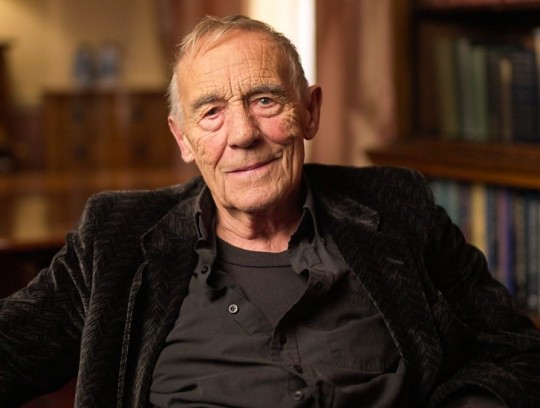
The actor Michael Jayston, who has died aged 88, was a distinguished performer on stage and screen. The roles that made his name were as the doomed Tsar Nicholas II of Russia in Franklin Schaffner’s sumptuous account of the last days of the Romanovs in Nicholas and Alexandra (1971), and as Alec Guinness’s intelligence minder in John Le Carré’s Tinker Tailor Soldier Spy on television in 1979. He never made a song and dance about himself and perhaps as a consequence was not launched in Hollywood, as were many of his contemporaries.
Before these two parts, he had already played a key role in The Power Game on television and Henry Ireton, Cromwell’s son-in-law, in Ken Hughes’s fine Cromwell (1969), with Richard Harris in the title role and Guinness as King Charles I. And this followed five years with the Royal Shakespeare Company including a trip to Broadway in Harold Pinter’s The Homecoming, in which he replaced Michael Bryant as Teddy, the brother who returns to the US and leaves his wife in London to “take care of” his father and siblings.
Jayston, who was not flamboyantly good-looking but clearly and solidly attractive, with a steely, no-nonsense, demeanour and a steady, piercing gaze, could “do” the Pinter menace as well as anyone, and that cast – who also made the 1973 movie directed by Peter Hall – included Pinter’s then wife, Vivien Merchant, as well as Paul Rogers and Ian Holm.
Jayston had found a replacement family in the theatre. Born Michael James in Nottingham, he was the only child of Myfanwy (nee Llewelyn) and Vincent; his father died of pneumonia, following a serious accident on the rugby field, when Michael was one, and his mother died when he was a barely a teenager. He was then brought up by his grandmother and an uncle, and found himself involved in amateur theatre while doing national service in the army; he directed a production of The Happiest Days of Your Life.
He continued in amateur theatre while working for two years as a trainee accountant for the National Coal Board and in Nottingham fish market, before winning a scholarship, aged 23, to the Guildhall School of Music and Drama in London, where he was five years older than everyone else on his course. He played in rep in Bangor, Northern Ireland, and at the Salisbury Playhouse before joining the Bristol Old Vic for two seasons in 1963.
At the RSC from 1965, he enjoyed good roles – Oswald in Ghosts, Bertram in All’s Well That Ends Well, Laertes to David Warner’s Hamlet – and was Demetrius in Hall’s film of A Midsummer Night’s Dream (1968), with Warner as Lysander in a romantic foursome with Diana Rigg and Helen Mirren.
But his RSC associate status did not translate itself into the stardom of, say, Alan Howard, Warner, Judi Dench, Ian Richardson and others at the time. He was never fazed or underrated in this company, but his career proceeded in a somewhat nebulous fashion, and Nicholas and Alexandra, for all its success and ballyhoo, did not bring him offers from the US.
Instead, he played Charles Lutwidge Dodgson (Lewis Carroll) in Alice’s Adventures in Wonderland (1972), a so-so British musical film version with music and lyrics by John Barry and Don Black, with Michael Crawford as the White Rabbit and Peter Sellers the March Hare. In 1979 he was a colonel in Zulu Dawn, a historically explanatory prequel to the earlier smash hit Zulu.
As an actor he seemed not to be a glory-hunter. Instead, in the 1980s, he turned in stylish and well-received leading performances in Noël Coward’s Private Lives, at the Duchess, opposite Maria Aitken (1980); as Captain von Trapp in the first major London revival of The Sound of Music at the Apollo Victoria in 1981, opposite Petula Clark; and, best of all, as Mirabell, often a thankless role, in William Gaskill’s superb 1984 revival, at Chichester and the Haymarket, of The Way of the World, by William Congreve, opposite Maggie Smith as Millamant.
Nor was he averse to taking over the leading roles in plays such as Peter Shaffer’s Equus (1973) or Brian Friel’s Dancing at Lughnasa (1992), roles first occupied in London by Alec McCowen. He rejoined the National Theatre – he had been Gratiano with Laurence Olivier and Joan Plowright in The Merchant of Venice directed by Jonathan Miller in 1974 – to play a delightful Home Counties Ratty in the return of Alan Bennett’s blissful, Edwardian The Wind in the Willows in 1994.
On television, he was a favourite side-kick of David Jason in 13 episodes of David Nobbs’s A Bit of a Do (1989) – as the solicitor Neville Badger in a series of social functions and parties across West Yorkshire – and in four episodes of The Darling Buds of May (1992) as Ernest Bristow, the brewery owner. He appeared again with Jason in a 1996 episode of Only Fools and Horses.
He figured for the first time on fan sites when he appeared in the 1986 Doctor Who season The Trial of a Time Lord as Valeyard, the prosecuting counsel. In the new millennium he passed through both EastEnders and Coronation Street before bolstering the most lurid storyline of all in Emmerdale (2007-08): he was Donald de Souza, an unpleasant old cove who fell out with his family and invited his disaffected wife to push him off a cliff on the moors in his wheelchair, but died later of a heart attack.
By now living on the south coast, Jayston gravitated easily towards Chichester as a crusty old colonel – married to Wendy Craig – in Coward’s engaging early play Easy Virtue, in 1999, and, three years later, in 2002, as a hectored husband, called Hector, to Patricia Routledge’s dotty duchess in Timberlake Wertenbaker’s translation of Jean Anouilh’s Léocadia under the title Wild Orchids.
And then, in 2007, he exuded a tough spirituality as a confessor to David Suchet’s pragmatic pope-maker in The Last Confession, an old-fashioned but gripping Vatican thriller of financial and political finagling told in flashback. Roger Crane’s play transferred from Chichester to the Haymarket and toured abroad with a fine panoply of senior British actors, Jayston included.
After another collaboration with Jason, and Warner, in the television movie Albert’s Memorial (2009), a touching tale of old war-time buddies making sure one of them is buried on the German soil where first they met, and a theatre tour in Ronald Harwood’s musicians-in-retirement Quartet in 2010 with Susannah York, Gwen Taylor and Timothy West, he made occasional television appearances in Midsomer Murders, Doctors and Casualty. Last year he provided an introduction to a re-run of Tinker Tailor on BBC Four. He seemed always to be busy, available for all seasons.
As a keen cricketer (he also played darts and chess), Jayston was a member of the MCC and the Lord’s Taverners. After moving to Brighton, he became a member of Sussex county cricket club and played for Rottingdean, where he was also president.
His first two marriages – to the actor Lynn Farleigh in 1965 and the glass engraver Heather Sneddon in 1970 – ended in divorce. From his second marriage he had two sons, Tom and Ben, and a daughter, Li-an. In 1979 he married Ann Smithson, a nurse, and they had a son, Richard, and daughter, Katie.
🔔 Michael Jayston (Michael James), actor, born 29 October 1935; died 5 February 2024
Daily inspiration. Discover more photos at Just for Books…?
12 notes
·
View notes
Text
Kamala/ James Arthur Harris
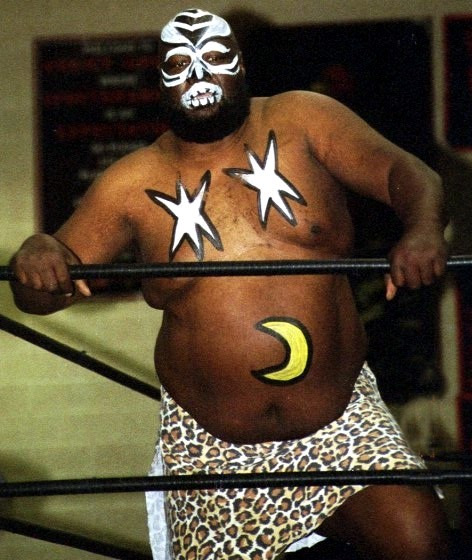
James Arthur “Kamala” Harris was a professional wrestler best known for his professional wrestling persona, Kamala, a fictional Ugandan giant. Harris was born on May 28, 1950, to Jessie Harris and Betsy Mosely in Senatobia, Mississippi. He had four sisters as well. Harris grew up in Coldwater, Mississippi where his family owned a furniture store. When he was four years old, his father was murdered after a dice game. Growing up, he worked as a sharecropper to help provide for the family. Harris dropout out of high school in the ninth grade and became a burglar.
In 1967, on the advice of police, Harris left Mississippi and moved to Florida where he worked a truck driver and fruit picker. He next moved to Benton Harbor, Michigan where he met a professional wrestler Bobo Brazil who became his trainer. In 1978, Harris made his professional wrestling debut as “Sugar Bear” Harris. One year later, in 1979 he won his first professional wrestling championship in the National Wrestling Association (NWA) Tri-State Tag Team competition with wrestler Oki Shikina. In 1980 he joined Southeastern Championship Wrestling as “Bad News” Harris and later that year won its championship. In 1982, Harris joined the Continental Wrestling Association (CWA) after being offer by a job by promoter Jerry O’Neal “The King” Lawler.
While wrestling for CWA, Lawler and another wrestling promoter, Jerry Winston Jarret, created a new wrestling character for Harris. This character, named Kamala, was a stereotypical Ugandan headhunter with face and body painting who was supposed to be the bodyguard of former President of Uganda Idi Amin. Harris then joined Mid-South Wrestling owned by promoter William Harris and remained with the organization until 1986.
Harris wrestled with other wrestling organizations during his career including World Class Championship Wrestling and the World Wrestling Federation (now World Wrestling Entertainment, WWE), and World Championship Wrestling before retiring in 2010 at the age of 60.
Despite his long successful wrestling career, Harris had numerous personal and health related issues. In 2011, had his left leg amputated below the knee due to complications from high blood pressure and diabetes. A year later, his right leg was also amputated below the knee. As a result of the amputations, a charity fund was set up to help with his financial needs.
In 2016, Harris was part of a class action lawsuit filed against World Wrestling Entertainment claiming that wrestlers received traumatic brain injuries during their time with WWE. Unfortunately for Harris and other wrestlers, the lawsuit was dismissed by Judge Vanessa Lynne Bryant in 2018.
Harris was married twice during his lifetime, first to Clara Freeman. That marriage ended in divorce. He later married Emmer Jean Bradley and that marriage lasted until his death. He was also father six children, five daughters and one son.
In 2017, Harris underwent lifesaving emergency surgery to clear fluid from around his heart and lungs. His health problems continued. He was hospitalized on August 5, 2020, after testing positive from COVID-19 during the pandemic in Mississippi. Four days later, on August 9, Harris died from complications from diabetes and COVID-19 in Oxford, Mississippi. He was 70.
https://www.blackpast.org/african-american-history/people-african-american-history/kamala-james-arthur-harris-1950-2020/
8 notes
·
View notes
